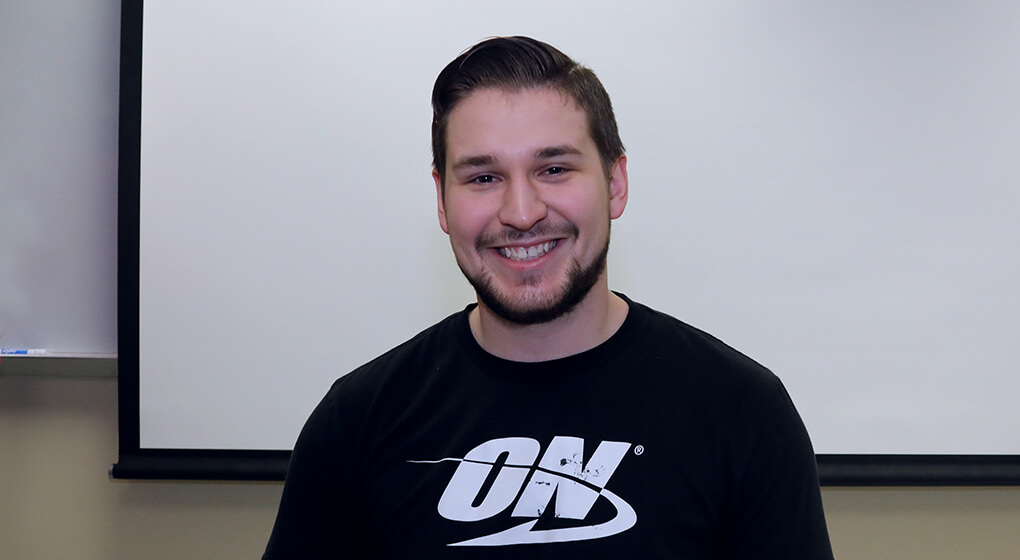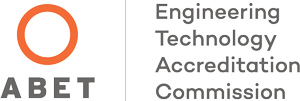Mechanical Design Overview
The need for innovative products across all industries triggered a rising demand for people trained in the design field. CVTC is meeting these needs with a Mechanical Design program. If you enjoy working with a team to design and develop new products and prepare them for the manufacturing process, CVTC’s new Mechanical Design program is right for you!
Utilize the newest technology, like laser engraving, 3D printing, and industry-utilized software while developing the basic skills and knowledge required to design products and solve problems.
Throughout the two year program students will learn:
- An understanding of manufacturing processes, machines and their mechanisms, including hydraulics, circuit design, and electrical systems
- Application of principles of geometric dimensioning and tolerancing
- Drafting and design software including CAD and SOLIDWORKS
- The selection, set-up, and calibration of measurement tools and instrumentation
- How to prepare laboratory reports and systems documentation associated with development, installation, or maintenance of mechanical components and systems
- A basic familiarity and use of industry codes, specifications, and standards
- Utilization of all the skills they’ve acquired throughout the program in a capstone project.
Part of a career pathway, you will already have credits toward the Mechanical Design program if you completed the Design & Drafting Technology technical diploma at CVTC. Call us at 715-833-6300 to learn more.
Program Objectives & Student Outcomes
The Mechanical Design program is committed to providing the best curriculum and education to its students. Read the program's mission statement, program objectives, and student learning outcomes.
Earn credit for prior learning! Do you have previous educational or work experience in the field? You could be eligible to receive credit for prior learning.
Explore This Program
Just the Facts
Mechanical Design
61 Credit Associate Degree
Program Length
Two Years
Delivery Method
Face-to-Face, Online
Program Location
Eau Claire, Online
Start Months
August
Learn more about the cost of attendance.
Term 1
$ 2,751
Term 2
$ 2,606
Term 3
$ 2,414
Term 4
$ 2,757
Materials
$ 817
Books
$ 1,603
What are estimated program costs? Estimated Total: $12,948
Career Opportunities
Analyst
Data Platform Engineer
Manufacturing Technician
Mechanical Designer
Mechanical Technologist
Process Engineer
Graduate Employers
CustomFIRE Apparatus
D&S Manufacturing
Design Air
Minnesota Wire
Tree Island Steel
WB Manufacturing
Program Outcomes
CVTC graduates are ready for the workforce. Each year, we send our graduates the Graduate Follow-Up Survey asking several questions related to employment. Here are the program outcomes and job data.
// Program Scorecard$63K Yearly Salary
Our recent Mechanical Design graduates reported an average starting salary of $62,654.
83% Employed
83% of our recent Mechanical Design graduates got a job in the industry.
41 Regional Jobs
There are 41 job openings in the CVTC district for the Mechanical Design industry.
Transfer
Credits to Other Institutions
Should you choose to continue your education after you leave CVTC, we have agreements in place with several institutions to ensure an easy transfer.
Program Courses
These are a few of the courses you will take in this program. Courses and the recommended sequence change from year to year; once you are enrolled in a program at CVTC you will be given a recommended course sequence that outlines what courses you should take and the order in which to take them.
You may search for available courses. If you are ever unsure of what courses to take, talk to your academic advisor. If you are looking for course information for previous years, check out our past catalogs.
Here are a few of the courses you can take in the Mechanical Design program.
Sample Courses
Manufacturing Materials and Processes
Manufacturing materials includes the study of metals, plastics, elastomers, woods, ceramics, glass, composites, cement, and concrete properties. Manufacturing processes include mechanical tool cutting, machining, electrochemical milling, photochemical etching, laser machining, casting, fabricating, joining, heat treating, and secondary finishing operations. Automation applications such as robotics, and computer integrated technologies are also included with local case studies of industry. Applications and fundamental inspection techniques associated with the various materials are explored.
Solid Modeling I
This course introduces the student to the concepts and commands required to develop 3-D solid models using SolidWorks software. Students will learn to constrain models and develop parametric models. Students will also produce 2-D working drawings from the models. Topics will also include dimensioning, orthographic views, and section views.
Tool Design Practices
This course provides a fundamental background in the design and application of jigs, fixtures, rapid prototyping equipment and gauging devices that are used in the manufacturing process. Classroom work is done through design work on CAD and Solidworks and research of standard tooling components from a variety of resources.
Request More Information
Please provide your contact information and an Admissions Advisor will get back to you ASAP with more information about this program.
We will never share or sell your information outside of CVTC. We may, on occasion, contact you regarding relevant services, events, and materials. You may opt out at any time. View our privacy policy to understand how we collect and use your information.
Earn Credentials Along the Way
Career Pathways What is a career pathway?
Career Pathways are a clear, manageable way to access education that provides employer-recognized, stackable credentials tied to specific jobs, education, and career progression. Career Pathways are beneficial to high school students and teachers, parents, adult students, and employers.
Technical Diplomas
Associate Degree
Your future is waiting…Are you ready to get started?
Apply NowStudent Testimonial

I felt more like a person here rather than a number at a big school. I have good relationships with my instructors and they teach so efficiently. I’m very happy here with the personal relationships with the instructors.
Josh
Mechanical Design Student
Related Programs & Certificates
Whether you're looking to continue your learning to another program or to gain continuing education credit, CVTC offers a variety of learning opportunities for students.
Degrees & Diplomas
Design & Drafting Technology, Technical Diploma
Mechanical Maintenance, Technical Diploma
Continue Your Learning
CVTC can help you achieve your learning goals whether you are looking to advance your career or enrich your personal life.
// Explore Continuing Ed OpportunitiesUnsure of which program you'd like to go into? Learn more about our Career Assessment to help narrow down your options.
A Program You Can Trust
Program Accreditation
Associates of Applied Science Manufacturing Engineering Technologist is accredited by the Engineering Technology Accreditation Commission of ABET, under the General Criteria and the Program Criteria for Manufacturing Engineering Technology and Similarly Named Programs. ABET accreditation assures confidence that a collegiate program has met standards essential to prepare graduates to enter critical STEM fields in the global workforce.

Student Learning Outcomes
A Student Learning Outcome refers to the specific skills, knowledge, or abilities that students are expected to demonstrate upon successful completion of an academic program or degree.
Students will:
- TSA1 - Prepare detail and assembly drawings for documentation of mechanical components and products
- TSA2 - Create CAD geometry, parts and assemblies
- TSA3 - Design mechanical components and products
- TSA4 - Analyze mechanical engineering problems
- TSA5 - Select purchased parts
- SOL1 An ability to apply knowledge, techniques, skills and modern tools of mathematics, science, engineering, and technology to solve well-defined engineering problems in Mechanical Design (Local)
- SOL2 An ability to design solutions for well-defined technical problems and assist with the engineering design of systems, components, or processes appropriate in Mechanical Design SO2 (Local)
- SOL3 An ability to apply written, oral, and graphical communication in well-defined technical and nontechnical environments; and an ability to identify a use appropriate technical literature (Local)
- SOL4 An ability to conduct standard tests, measurements, and experiments and to analyze and interpret the results (Local)
- SOL 5 An ability to function effectively as a member of a technical team (Local)
Additional Admissions Resources
Admission Requirements
Each program requires specific requirements a student must meet to be considered for admissions to this program.
// View Admission RequirementsAdvanced Placement
This program has an advanced placement option. Eligibility for advanced placement requires students to meet additional requirements.
// View AP Admission RequirementsAdvising Tips
We have compiled helpful tips and general information for students in this program.
// View Advising Tips